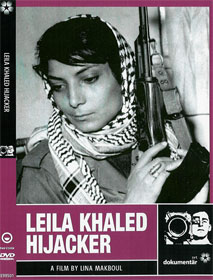5) Marina Tsvetayeva
L.T.: So I decided to start with Tsvetayeva. I put her on the list not only because she's one of the most revered poets of Russian 20th Century literature, but also because she has an amazing story of resilience and survival. Though she ended her life, I believe that she's taught us a lot about surviving some of the most disturbing tragedies as a result of political repression. My father is a huge fan of her poetry and speaks about how she survived the imprisonment of her daughter and the killing of her husband in a gulag for their political ideology. He always romaticised how she was persecuted because she refused to write propaganda for the Soviet State. I don't know if any of this is true or exaggerated, but I'm excited to find out! - L.T.31) Sylvia Rivera
S.O'M.: 09:20 am
I ask a lover, "Hey, you know about women, right?"
She replies, "erm..."
She's a queer anthropologist, so I think she'll have a good idea of who I might like. I ask her to take a look at the list of fifty names of fifty people, most of whom I've never heard of. After a few rumblings and mention of her Emma Goldman finger puppet (!) she mentions Sylvia Rivera. A Stonewall-veteran liberation activist? I'll take her, thanks! *Swoons*
S.O'M.:09:55 am
I start at the usual place: Google. The first result is Wikipedia. The first thing that strikes me on her page is that she died (relatively) recently, in 2002. The fact that this is living memory for me, a year from the beginning of my out-and-proud queer adulthood, strikes a chord with me.
She was a transgender activist and a founder of the Gay Liberation Front (GLF). Last year was the 40th anniversary of the GLF in the UK. Here in Manchester we used this as a springboard for discussing the theme of our Lesbian, Gay, Bi, Transgender and/or Queer (LGBT/Q) histories during our city's commercial Pride celebrations, which had a decidedly less political idea of what it meant to be 'looking back through the ages'. This spurs me on further, and I am looking forward to posthumously getting to know one of our liberation movement's founding mothers.
16) Leila Khaled
C.W.:
16) Leila Khaled
C.W.:
I’ve been infrequently holding book club meetings, which then snowballed into film screenings and discussions. So, with the start of the Incredible Women Project, it seemed like the perfect occasion to watch the documentary “Leila Khaled: Hijacker” (2005).
The movie, by Swedish-Palestinian director Lina Makboul, looks at the Palestinian Diaspora relationship with the icon of Leila Khaled, the infamous Popular Front for the Liberation of Palestine (PFLP) resistance fighter.
I had a lively discussion with friends following the documentary, including journalist Jesse Rosenfeld, who interviewed Khaled at her Amman, Jordan residence in 2008.
Makboul, herself a Palestinian refugee who grew up in Sweden, has conflicted views of Leila Khaled at the start of the film. She admires a woman with the audacity to take up arms to fight for the liberation of her people. At the same time, Makboul charges the “Palestinian terrorist” with giving a bad reputation to the Palestinian people. For instance, whenever she tells people about her Palestinian roots their first thought is of hijackings and suicide bombings.
Khaled, on the other hand, led a less sheltered life than Makboul. She was born in Haifa (at that time British Mandate Palestine), but fled to Lebanon during the 1948 War with her family when she was just 4 years old. In the documentary, we can see her old house (formerly Stanton Street) in Haifa. It looked very much like an old Arab neighborhood I visited not too long ago, where absentee properties (of Palestinian refugees) are now being illegally sold off to Jewish immigrants.
At 25, Khaled took part in her first of two hijackings with the PFLP. In 1970, after her second hijacking Khaled was arrested, then released by the British government in a prisoner exchange.
She was forced to disfigure her face so that she would not be recognizable. This is an issue that comes up in the film and that news media have focused on a great deal, because Khaled was considered very attractive. When Makboul questions her about this in the film, Khaled just brushes it off, explaining to her that it was necessary. Khaled also confides that many journalists had asked her about intimate details of her love life in the past, even suggesting that she became a militant because of a man, but Khaled thought it a waste of time to speak with journalists like this.
Rosenfeld says this attitude is consistent with his conversation with Khaled. She is determined that you do what you need to do, and personal life is irrelevant.
Khaled is still considered “the poster-girl for Palestinian militancy” and images of her are pasted throughout Palestinian refugee camps in Lebanon, as we can see in the film. These days she works as a Palestinian National Council member, and lives with husband and children in Amman, Jordan. From the looks of it, she leads a pretty mundane life. But after hijacking planes, I imagine anything would look mundane.



2 comments:
I have never read anything by her. Could you post one of her poems for us to read? Thanks!
Wow, what an interesting post, CW! So looking forward for more!!
Whenever you're ready to put together your article on her, please add a photo to the "Articles" page to go along with it...
Post a Comment